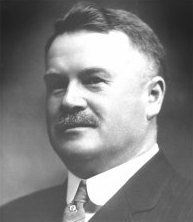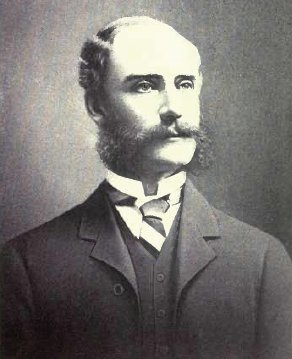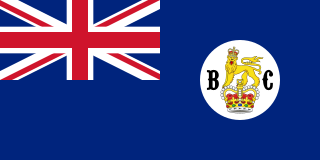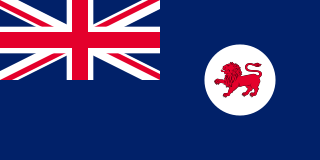Related Research Articles

Amor De Cosmos was a Canadian journalist, publisher and politician. He served as the second premier of British Columbia.

Simon Fraser Tolmie, was a veterinarian, farmer, politician, and the 21st premier of British Columbia, Canada.

John Robson was a Canadian journalist and politician, who served as the ninth premier of British Columbia.

Joseph Despard Pemberton was a surveyor for the Hudson's Bay Company, Surveyor General for the Colony of Vancouver Island, a pre-Confederation politician, a businessman and a farmer. He was born in 1821 in Dublin, Ireland and died in 1893 in Oak Bay, British Columbia. Joseph Pemberton laid out Victoria's town site, southern Vancouver Island and townsites along the Fraser River. He married Teresa Jane Grautoff and they are the parents of Canadian painter Sophie Pemberton. The town of Pemberton was named after him.

The Colony of British Columbia was a British Crown Colony that resulted from the 1866 merger of two British colonies, the Colony of Vancouver Island and the mainland Colony of British Columbia. The united colony existed until its incorporation into Canadian Confederation in 1871 as the Province of British Columbia.

The Colony of British Columbia was a crown colony in British North America from 1858 until 1866 that was founded by Richard Clement Moody, who was selected to 'found a second England on the shores of the Pacific', who was Chief Commissioner of Lands and Works for British Columbia and the first Lieutenant-Governor of British Columbia. Prior to the arrival of Moody's Royal Engineers, Columbia Detachment, the Colony's supreme authority was its Governor James Douglas, who was the Governor of the neighbouring colony of Vancouver Island.

The British Columbia Provincial Police (BCPP) was the provincial police service of British Columbia, Canada, between 1858 and 1950.

The Legislative Council of British Columbia was an advisory body created in 1867 to the governor of the "new" United Colony of British Columbia, which had been created from the merger of the old colonies of Vancouver Island and British Columbia. The new colony, like its predecessors, did not have a responsible government, and while its debates and resolutions carried considerable weight, executive power remained in the hands of the governor, who at the time of the council's founding was Frederick Seymour.

The Legislative Assembly of Vancouver Island, sometimes House of Assembly of Vancouver Island, was the colonial parliamentary body that was elected to represent voters in the Colony of Vancouver Island. It was created in 1856 after a series of petitions were sent to the Colonial Office in London protesting the Hudson's Bay Company's proprietary rule over the colony. It was the first elected assembly in British North America west of Ontario. Although at first only handful of colonists met the voting requirement, and most of those that did were tied to the HBC, the franchise was gradually extended, and the assembly began to assert demands for more control over colonial affairs, as well as criticize colonial governor Sir James Douglas's inherent conflict of interest as both governor and Hudson Bay Company's chief factor.

The Colony of Tasmania was a British colony that existed on the island of Tasmania from 1856 until 1901, when it federated together with the five other Australian colonies to form the Commonwealth of Australia. The possibility of the colony was established when the Parliament of the United Kingdom passed the Australian Constitutions Act in 1850, granting the right of legislative power to each of the six Australian colonies. The Legislative Council of Van Diemen's Land drafted a new constitution which they passed in 1854, and it was given royal assent by Queen Victoria in 1855. Later in that year the Privy Council approved the colony changing its name from "Van Diemen's Land" to "Tasmania", and in 1856, the newly elected bicameral parliament of Tasmania sat for the first time, establishing Tasmania as a self-governing colony of the British Empire. Tasmania was often referred to as one of the "most British" colonies of the Empire.

William Neelands Chant was a farmer and political figure in Alberta and British Columbia. He represented Camrose in the Legislative Assembly of Alberta from 1935 to 1940 as a Social Credit and then Independent member and Victoria City in the Legislative Assembly of British Columbia from 1953 to 1972 as a Social Credit member.
A total of 15 members were elected to the Third House of Assembly of Vancouver Island which ruled from September 2, 1863, to August 31, 1866. This was the last parliament for an independent Colony of Vancouver Island before unification with the colony of British Columbia.
The Legislative Council of British Columbia held its first election in 1866. BC was a colony formed by the union of the colony of Vancouver Island and the colony of British Columbia.
The Colony Assembly of British Columbia was formed in 1858 but there was no assembly till 1864. The assembly existed from January 21, 1864 to August 6, 1866 when the Colony of British Columbia merged with the Colony of Vancouver Island. Only a minority of the members of the Legislative Council were elected.
Wymond Ogilvy Hamley was an English-Canadian collector of customs and politician.
The 1892 New Year Honours were appointments by Queen Victoria to various orders and honours of the United Kingdom and British India.
The 1889 Birthday Honours were appointments by Queen Victoria to various orders and honours to reward and highlight good works by citizens of the British Empire. The appointments were made to celebrate the official birthday of The Queen, and were published in the London Gazette on 24 May 1889 and in The Times on 25 May 1889.
The 1892 Birthday Honours were appointments by Queen Victoria to various orders and honours to reward and highlight good works by citizens of the British Empire. The appointments were made to celebrate the official birthday of The Queen, and were published in the London Gazette on 24 May 1892 and in The Times on 25 May 1892.
The 1895 Birthday Honours were appointments by Queen Victoria to various orders and honours to reward and highlight good works by citizens of the British Empire. The appointments were made to celebrate the official birthday of The Queen, and were published in The Times on 25 May 1895 and in The London Gazette on 25 May 1895 and on 11 June 1895.
The 1882 Birthday Honours were appointments by Queen Victoria to various orders and honours to reward and highlight good works by citizens of the British Empire. The appointments were made to celebrate the official birthday of the Queen, and were published in The London Gazette on 23 May, 24 May and 2 June 1882.
References
- ↑ "Archived copy". Archived from the original on 2013-05-11. Retrieved 2012-05-10.
{{cite web}}: CS1 maint: archived copy as title (link)